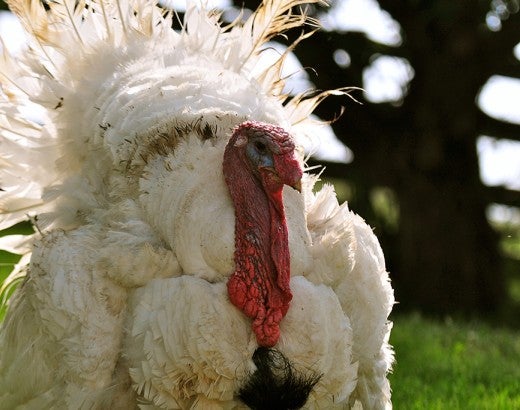The marketplace is central to the humane world we are working to create. When we push for improvements in the food, fashion, entertainment, household goods and industrial sectors, we are doing it to help animals. But we are also doing our best to empower consumers who want to align their purchasing decisions with their values.
In a few areas, we’re seeing remarkable progress. This season’s fashion weeks in New York, Paris and Milan coincided with the announcement that Italian luxury brands Moncler and Dolce&Gabbana had committed to fur-free policies. In Congress, the Personal Care and Products Council, a national trade organization representing hundreds of global cosmetics and personal care products companies, is lobbying alongside animal organizations in support of the Humane Cosmetics Act.
Efforts to better align the food services sector with consumer demand have produced astonishing results, too. Right now, the college dining hall is a genuine bellwether of change, as demand for plant-based options is sharply rising. Moreover, the popularity of these options has sparked real innovation among food service providers as evidenced by the commitment recently announced by Fresh Ideas Food Service, a company serving academic institutions and other clients in nine states from the Midwest to the Southeast. Fresh Ideas has committed to a July 1, 2025 timeline for making half of all its menu offerings plant-based, a pioneering first in the food service universe. The company will pursue its goal in stages, with benchmarks for plant-based conversion of 10% in 2023 and 25% in 2024, on the way to its mid-2025 target date.
Carl Lovett, a chef and executive at Fresh Ideas, has been the driving force in this process. In his leadership role, it’s his responsibility to keep a finger on the pulse of new developments in food service. Early on, however, Lovett concluded that plant-based eating was not merely a trend but “a lifestyle that’s here to stay.” That’s why Fresh Ideas chose to partner with the Humane Society of the United States on concept development, recipe creation and culinary trainings for its chef cohort. Lovett met members of our HSUS dining services team at a food industry conference and has been working with us ever since.
What Fresh Ideas is doing is part of a noticeable plant-forward trend in food service, and we have worked with many other food service companies to develop plant-based menus and dishes for hundreds of colleges, universities and other institutions across the country. But Lovett and his team wanted to take things a step further with their 50% commitment after a successful recipe development session with our team. “It was just so good that no one was focusing on that it was vegan or vegetarian,” says Lovett. “It was just good food.”
Their enthusiasm grew once the company’s culinary brain trust had finalized the menu plan, confident, as Lovett publicly stated, that “these dishes will satisfy everyone from die-hard meat eaters to flexitarians to vegans.” This understanding also shaped the decision Fresh Ideas made to incorporate plant-based recipes and offerings at all its food stations, an approach the HSUS has long advocated, rather than serve vegetarian and vegan food in a separate area.
As part of our work to improve the lives of animals used for food, we’ve been pressing producers, restaurants, food service companies and grocery chains to make a stronger commitment to plant-based proteins for some time. But for those of us whose college years are far behind us, it’s simply stunning to see what’s happening in campus dining halls across the nation.
On the surface, a luxury fashion brand, a trade association and a food service company might seem to have little in common. But they are all part of the push to do better—for animals, for the environment and for our own sake—and they’re all answering the call with decisive action and public commitments. By expanding the range of humane choices available to conscientious consumers, they’re feeding the most powerful driver for change—the collective appetite for a more humane society.



